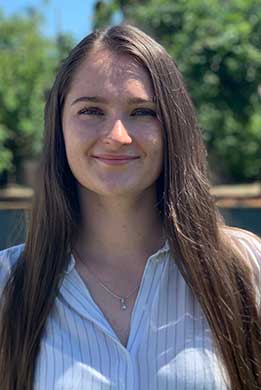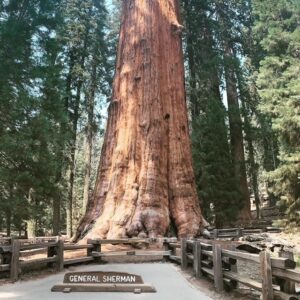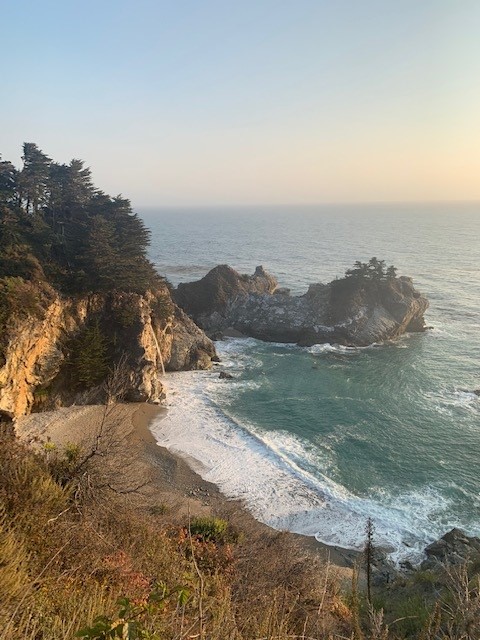ALEKSANDRA SERAFIN
As a Ph.D. candidate at the School of Engineering at the University of Limerick (UL), Aleksandra Serafin's doctoral research focuses on developing and characterising novel materials for use as electroconductive scaffolds for the purpose of spinal cord injury repair. As a Fulbright Student to University of California San Diego, she furthered her material research with detailed in-vitro and in-vivo studies. Aleksandra offers some advice and insights to Fulbright applicants...
"Before I considered applying for a Fulbright program, I found an interesting paper which really aligned with my current work, and from which I drew a lot of information and inspiration for my own project. Then, when the opportunity of the Fulbright Exchange arose, I immediately I knew that this research group which possessed years of expertise in my field was the place to conduct the exchange.
 I contacted the director of the lab via the email I found on their research paper and inquired if they would be interested in hosting me in their lab, and thankfully they agreed!
I contacted the director of the lab via the email I found on their research paper and inquired if they would be interested in hosting me in their lab, and thankfully they agreed!
I believe that the biggest help I received in writing my application essays came from contacting the Fulbright Ambassador on my campus. Dr. McCarthy gave me invaluable tips on what to include in my essay from a personalized objective. But the advice she gave me can be applied to anyone. Firstly, have a robust reasoning as to why you want to go to a particular host institution/group. Are they leaders in your field of
study? Can you learn from each other? Define exactly why it is crucial for you to travel and work there. As for your personal essay, is there anything interesting outside of your field of study which makes you stand out? Something that you can perhaps participate in during your exchange and engage with the surrounding community? Be it being an avid knitter or a kayaking enthusiast?
I also communicated with my host institution regarding the scientific part of the application, to make sure that my project plan and study objectives were feasible within the specified time of the exchange. If you will receive the happy phone call that you have received the Fulbright award, then start planning your adventure in the US! The first thing is that you will need to complete all the necessary medical forms to be granted your visa.
 Regarding the host institution, when you initially start it can take up to a few weeks to become fully trained and to begin the work you set out to do, but different fields of interest could take less. My advice would be to allocate for this time in your project plan or even talk with your host institution about what you can expect. Also try not to get discouraged during this time, as unfortunately long lead times in getting anything done in big universities is a real possibility and not your fault!
Regarding the host institution, when you initially start it can take up to a few weeks to become fully trained and to begin the work you set out to do, but different fields of interest could take less. My advice would be to allocate for this time in your project plan or even talk with your host institution about what you can expect. Also try not to get discouraged during this time, as unfortunately long lead times in getting anything done in big universities is a real possibility and not your fault!
I personally found trying to find accommodation quite hard in my host city, with living arrangements on campus booked out for years in advance. If you are really struggling to find something, ask your host group for advice and help. Another idea, which I ended up availing of, was to look for corporate housing. In my case, they had an international student corporate housing option to avail of close to campus which worked out ideally.
Depending on which place in the US you will be, expect the cost of living to be very different. My exchange occurred in San Diego, California, meaning it is one of the expensive places to stay in the US. For example, a simple mobile phone plan can cost up to $80 a month.
Additionally, depending on your host university medical insurance policy, you might need to purchase additional insurance on top of the one provided to you by Fulbright, which can be expensive as well, so research the area and university before you go over to be prepared.
 The US is very culturally different, depending on which area you will be in. Cultural shock is very possible, even in small interactions such as people randomly talking to you in the line at the shop etc. Observe the new culture around you and try to keep an open mind. Most times whenever someone learns that you are from Ireland they will be fascinated and have a million questions, so use this to your advantage in getting to know new people. Join any clubs you are interested in and travel around the area or the state, road trips are very popular for this. If you start to miss Ireland, you can search if there are any local GAA clubs in your area to contact other Irish people. Reach out to them, even if you don’t play at all!
The US is very culturally different, depending on which area you will be in. Cultural shock is very possible, even in small interactions such as people randomly talking to you in the line at the shop etc. Observe the new culture around you and try to keep an open mind. Most times whenever someone learns that you are from Ireland they will be fascinated and have a million questions, so use this to your advantage in getting to know new people. Join any clubs you are interested in and travel around the area or the state, road trips are very popular for this. If you start to miss Ireland, you can search if there are any local GAA clubs in your area to contact other Irish people. Reach out to them, even if you don’t play at all!
Another small advice that I can give is that if you are going over to the US for any significant period (6+ months), you should try to get state identification. Most places with age restrictions (including grocery stores) will only accept passports as a valid form of ID for international people, hence having a state ID can limit your chances of losing your passport. You can apply for this through your local DMV and submit your forms for verification before your appointment. In my personal experience this process was very quick and easy, and nothing like the torture they depict it as in the movies.
Professionally, this award has given me an invaluable opportunity to not only learn new skills and techniques not available to me in my home institution but has also allowed me to network and work closely with people who are experts in my field. The studies which I have completed during my exchange will allow me to publish my work in journals with a much higher impact factor, thus creating a much better resume and setting me up for better professional opportunities in the future.
Being so far away from friends and family for nearly a year, and in my case during a global pandemic, is sometimes not the easiest of challenges to take on. If you are feeling home sick or don’t feel like you have hit your stride during your exchange, please don’t feel discouraged. This is an immense and scary step to take, but the rewards you get out of it will outweigh the negatives. My confidence in my ability to tackle challenges and obstacles has greatly improved during this award, as well as my socializing skills. When you are placed in a new environment, in a new culture, you start to realize how capable and strong you really are. These areas are not perhaps as greatly looked upon when considering the impact of this experience, but personally this aspect has had the biggest impact on me."
